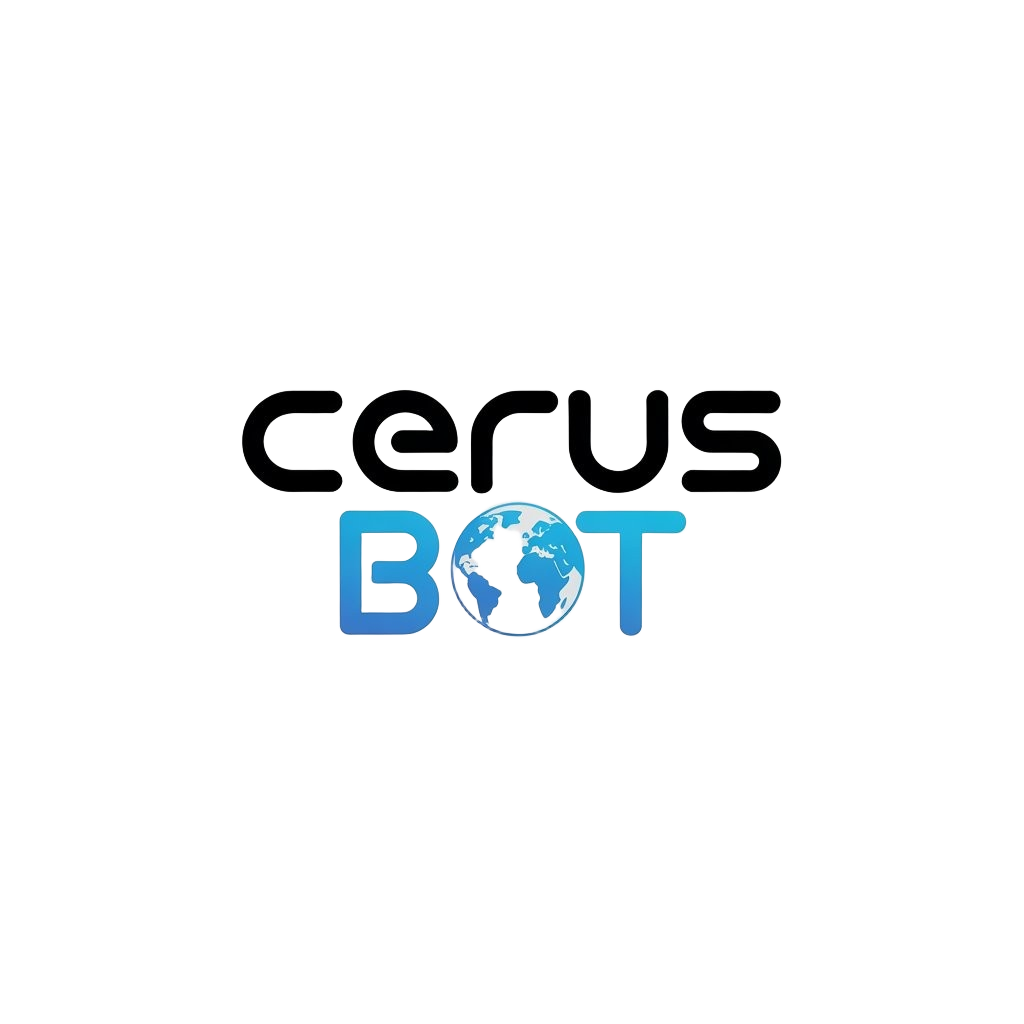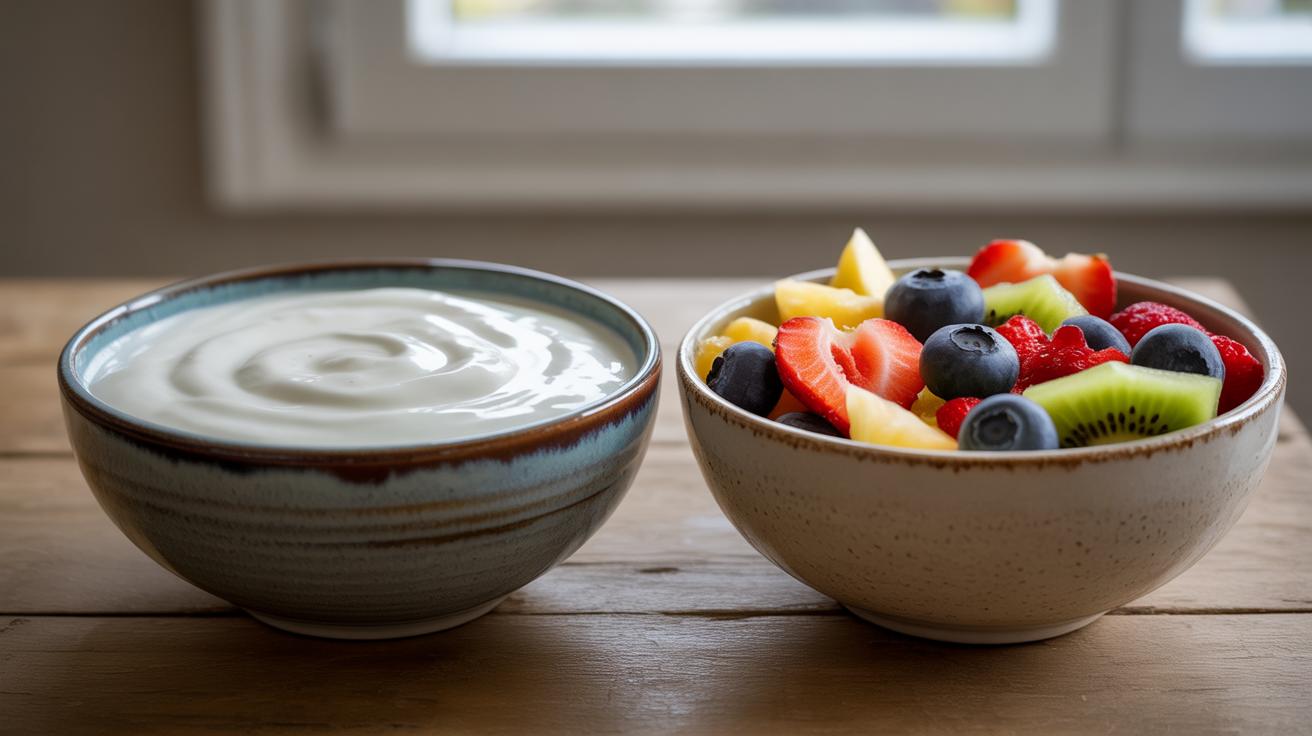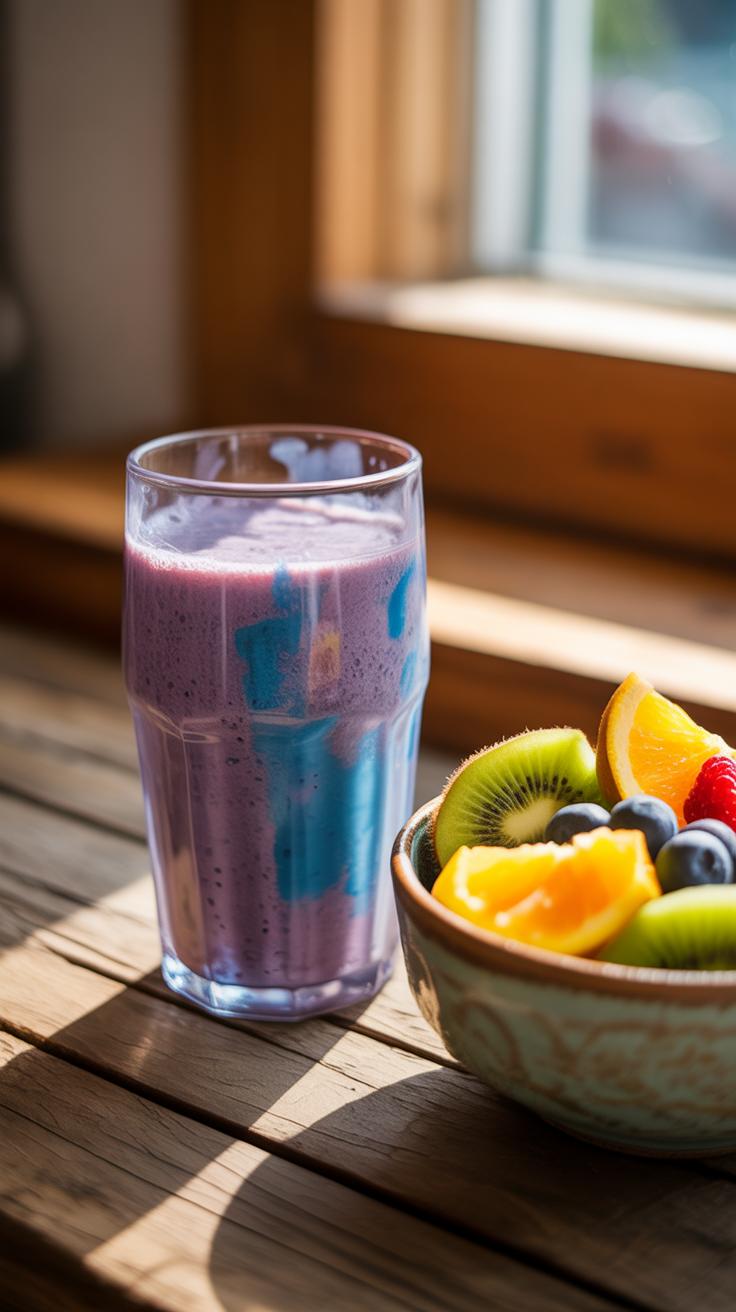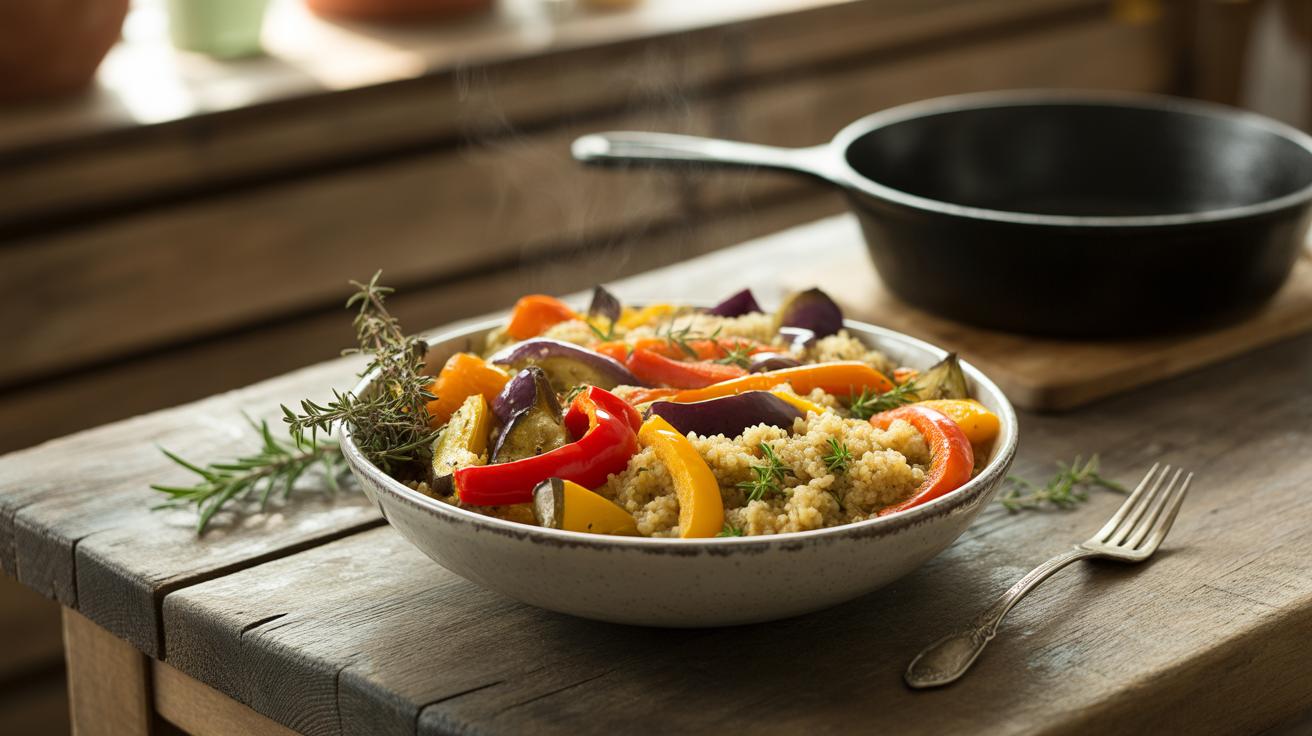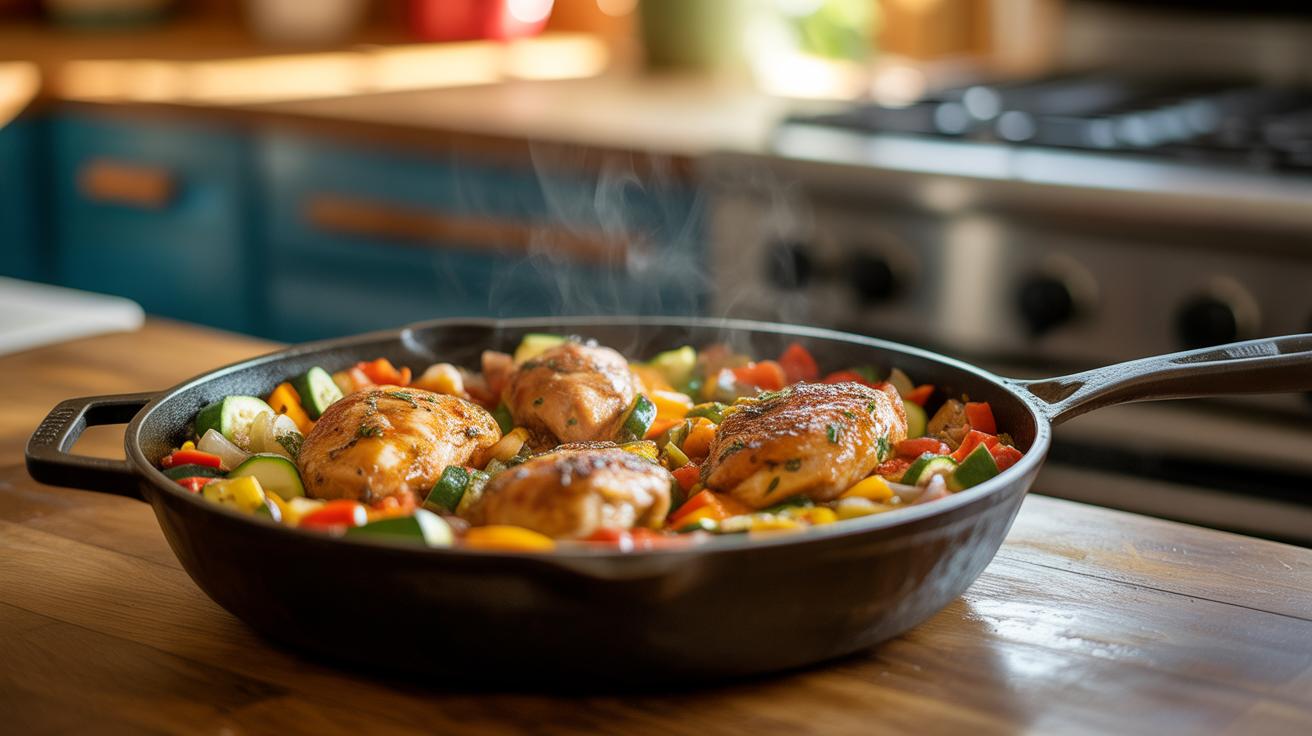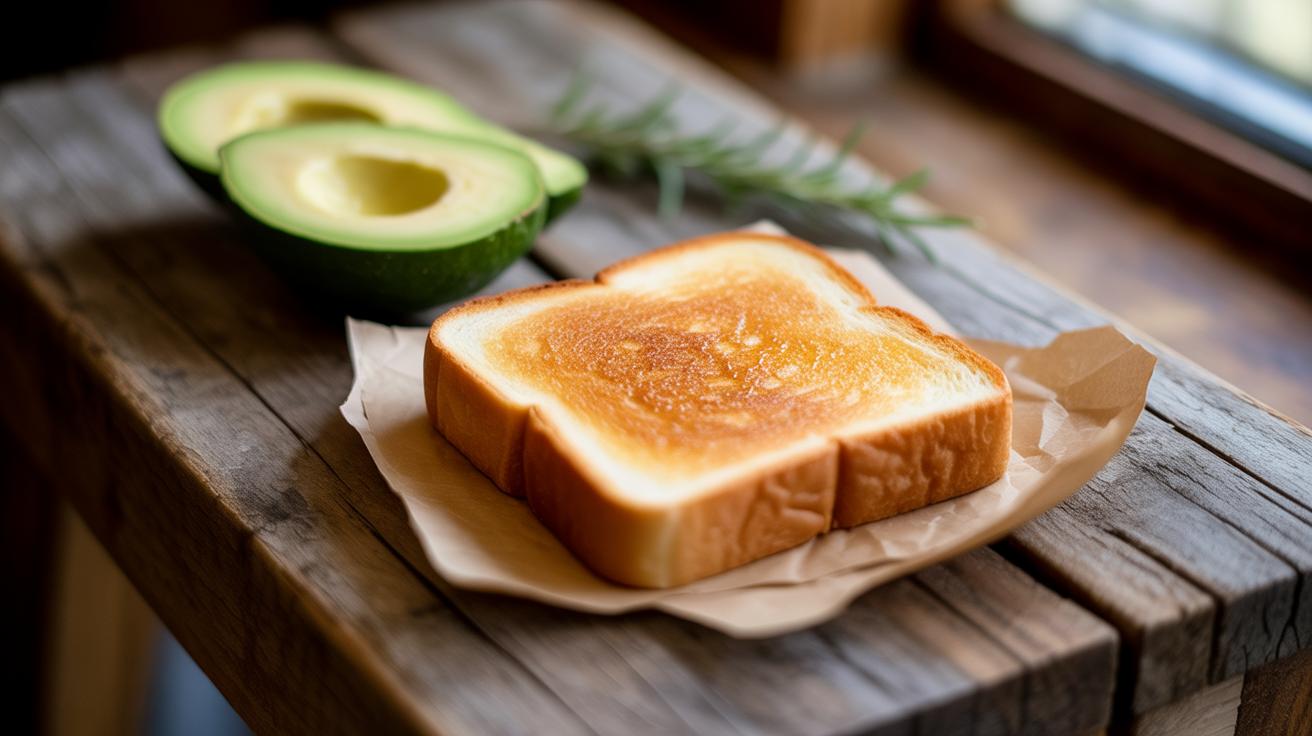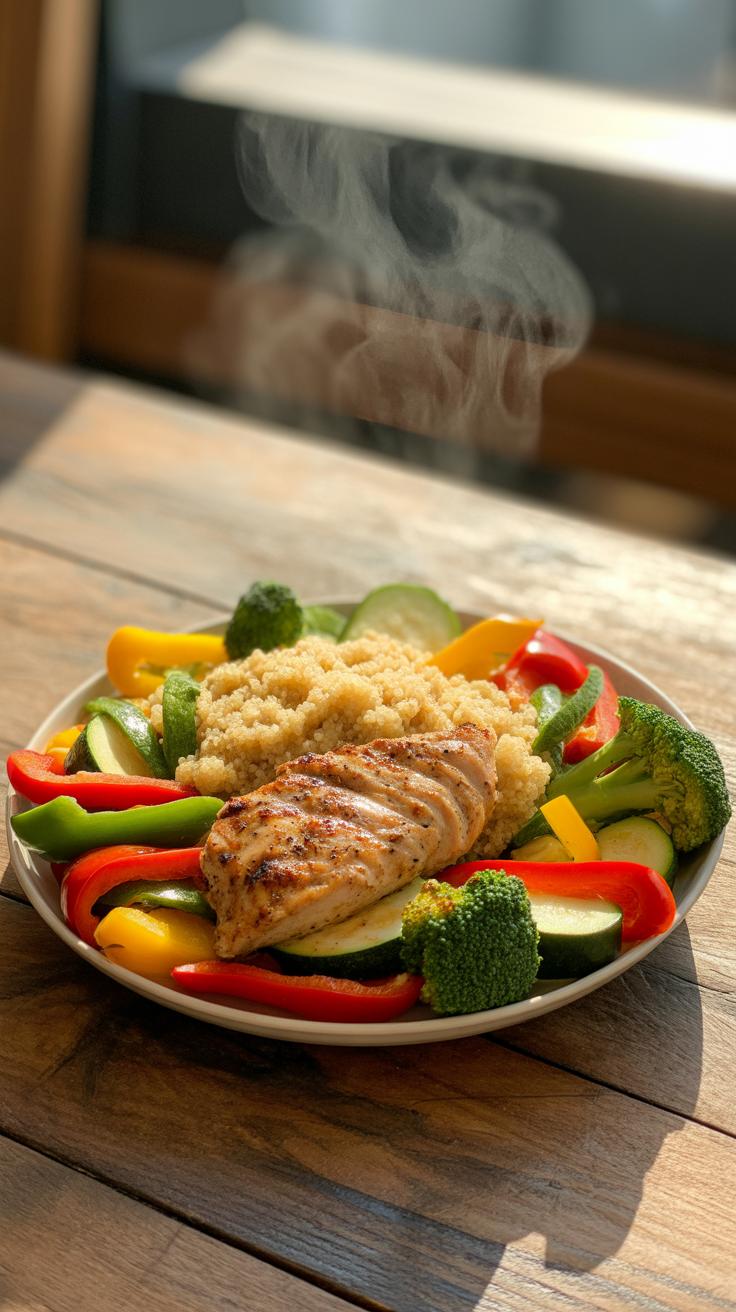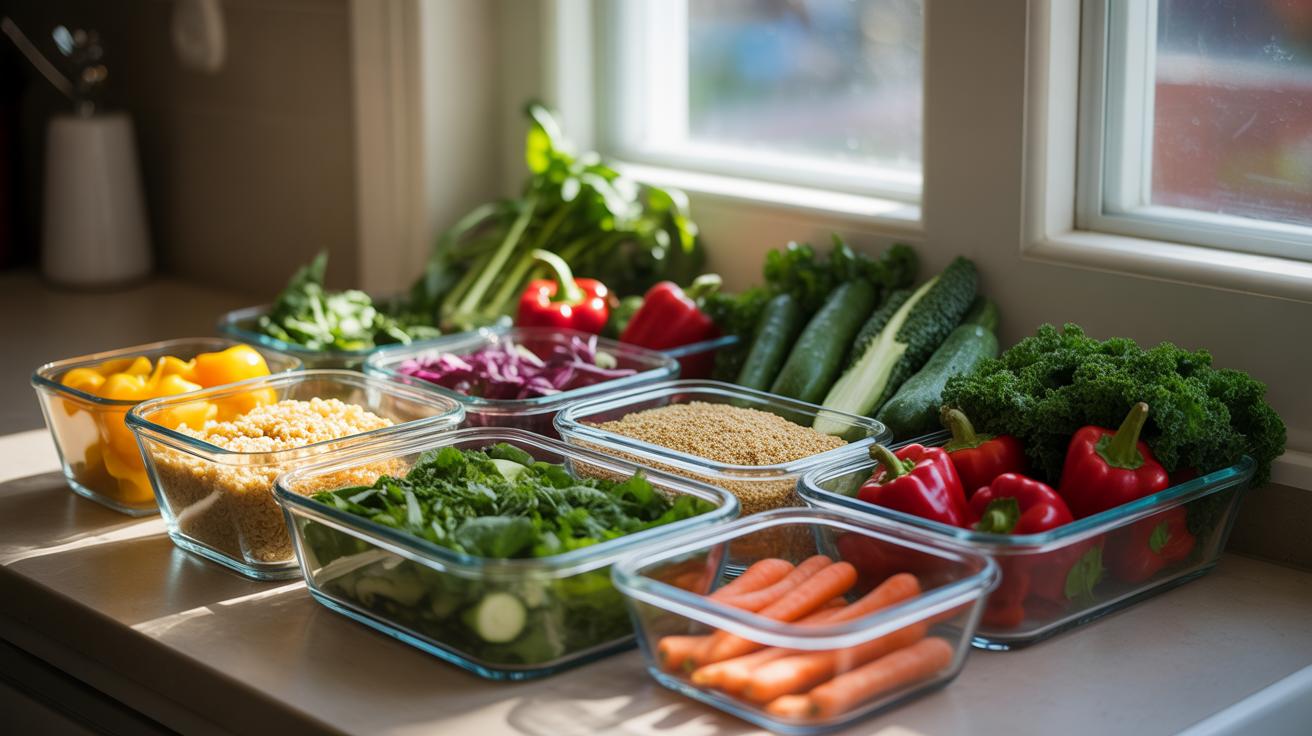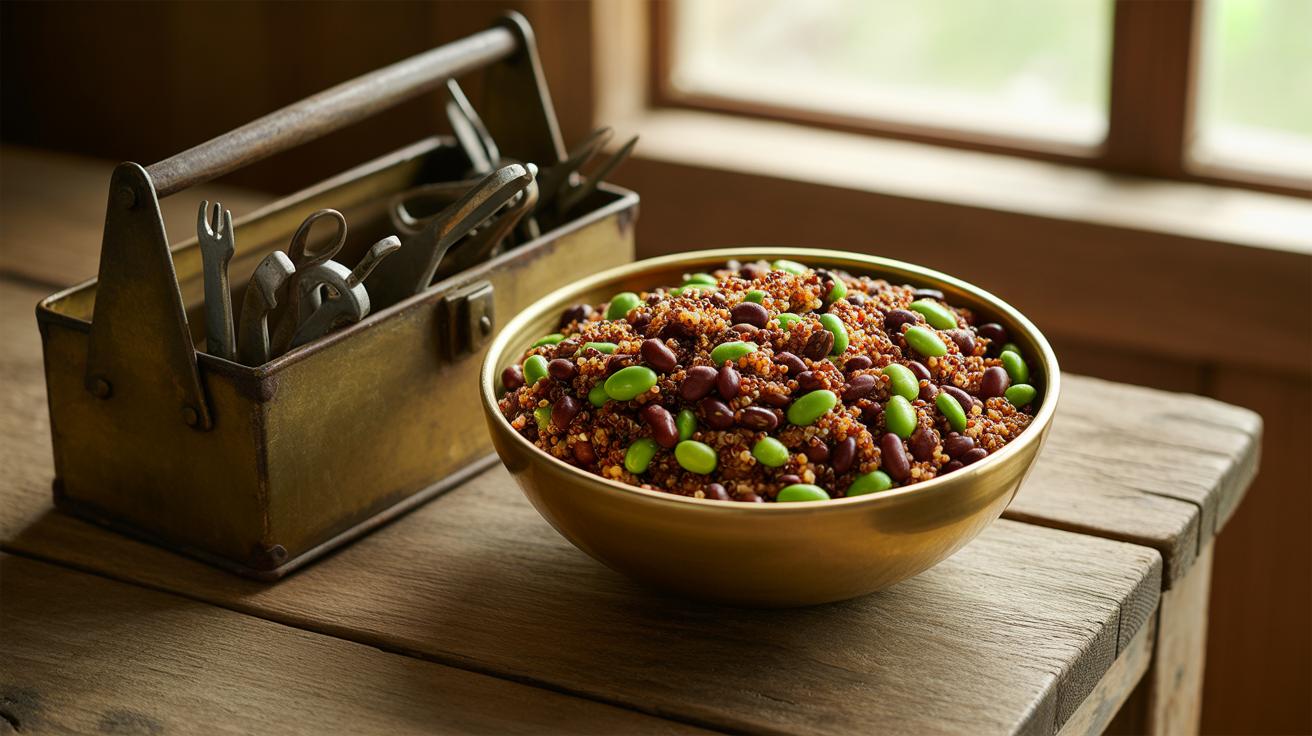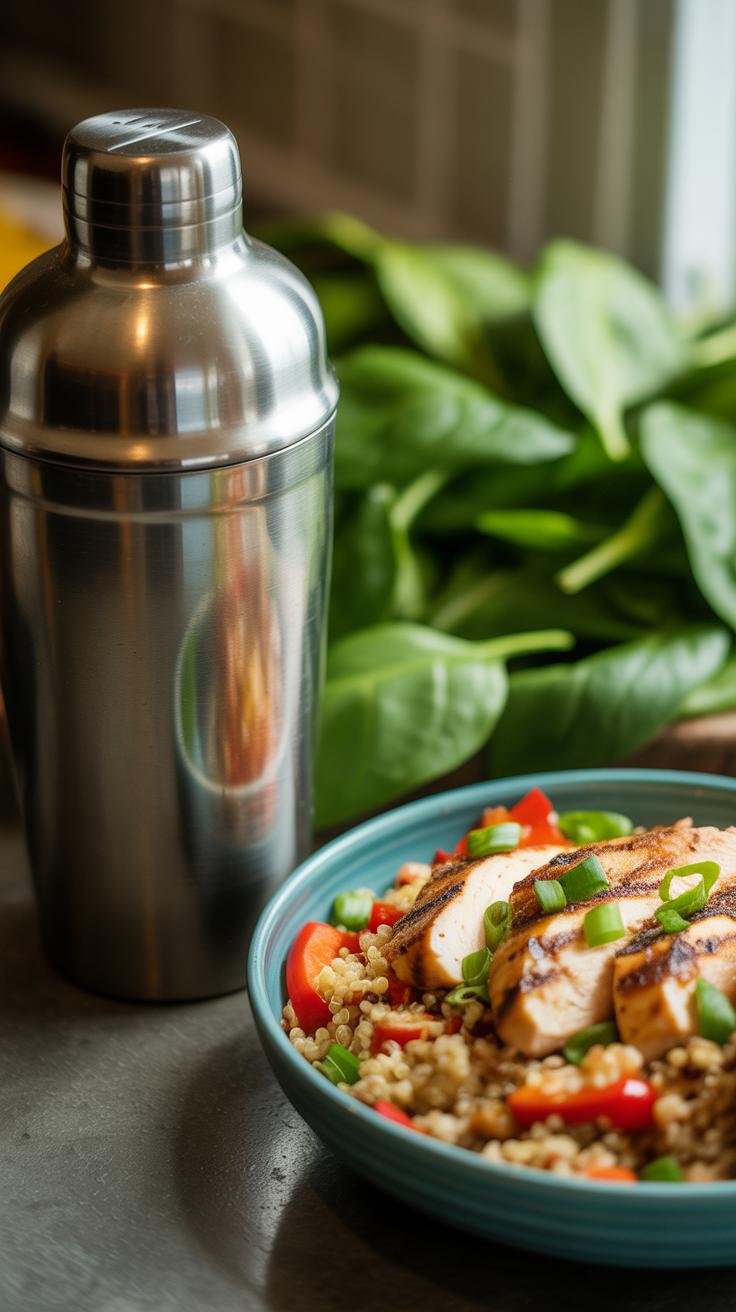Introduction
After your workout, what you eat matters for recovery and future performance. Choosing the right nutrients can help your muscles repair and replenish your energy stores. In particular, understanding the role of protein and carbohydrates in your post-workout meal can make a big difference.
This article compares how protein and carbs contribute to recovery. You will learn what each nutrient does, why it is important, and how to balance them effectively in your after workout food. That way, you can support your fitness goals with the right nutritional choices.
What Protein Does for Muscles
After a workout, your muscles are in a somewhat fragile state. They’ve experienced tiny tears from the strains of exercise. Protein plays a key role here—it acts almost like a repair crew, helping those muscle fibers recover and strengthen. Without enough protein, muscles can’t rebuild properly, and that can slow progress or even lead to breakdown.
Your body uses protein to support muscle tissues by rebuilding the fibers and creating new ones. This process isn’t just about recovery; it’s also about adapting to the stress of exercise so muscles grow stronger. If you neglect protein after working out, your muscles may remain weak or overly fatigued, which isn’t ideal if you’re aiming to improve.
Protein Building Blocks Explained
Proteins are made of amino acids, which are kind of the fundamental units your muscles need to repair themselves. Think of amino acids as the small pieces that come together to rebuild damaged muscle after training. Among these, some are labeled “essential” because your body can’t produce them—so you need to get them through food.
These amino acids don’t just patch things up; they also signal your muscles to start growing. It’s fascinating how the right mix can influence recovery speed. Sometimes people focus only on total protein intake but forget about amino acid quality, which really matters.
Timing Protein Intake Effects
Getting protein soon after exercise can make a real difference. There’s this period often called the “anabolic window,” where your muscles are especially ready to absorb nutrients and start rebuilding. If you wait too long—say several hours—the recovery benefits may not be as strong.
That said, the exact timing isn’t an ironclad rule. Some research suggests that a general good intake throughout the day is what counts most. But grabbing a protein-rich snack or meal within thirty to sixty minutes post-workout seems to give your muscles a helpful jumpstart. It’s like telling your body, “Here’s what you need to fix things up.”
How Carbohydrates Restore Energy
After a workout, your muscles crave fuel. That fuel is primarily stored as glycogen, a form of carbohydrate tucked away in muscles and the liver. When you exercise, especially during intense or prolonged sessions, these glycogen stores get depleted as your body taps into them for energy.
Carbohydrates help refill those energy reserves. When you eat carbs after working out, your body breaks them down into glucose, which then travels through your bloodstream. Some of this glucose gets used immediately for energy, but a big chunk gets converted back into glycogen. This stored glycogen is what powers your muscles in future activity.
Why does this matter? Well, without restoring glycogen, your muscles might feel tired or stiff the next day. Think of glycogen as a sort of energy bank. If you don’t deposit enough after withdrawal, you might run low sooner than expected. Eating carbs helps replenish these stores, allowing you to bounce back better.
Glycogen Replenishment Process
When carbs enter your system, enzymes break them down into simple sugars, mainly glucose. Your bloodstream carries this glucose to muscle cells and liver cells. Inside these cells, glucose molecules link up to form glycogen chains. This process is called glycogenesis. It’s like snapping together pieces of a Lego set to rebuild what was used.
Your muscles store glycogen for their own energy needs, while the liver keeps some in reserve to regulate blood sugar and supply energy to other organs when necessary. How much glycogen your body can store depends on several factors, like your muscle mass and fitness level. But the main idea is—carbs eaten post-workout replenish these stores effectively.
Interestingly, the rate of glycogen synthesis slows down as stores fill, so eating carbs in excess won’t speed things up indefinitely. There’s a sweet spot where carb intake optimizes muscle recovery without unnecessary surplus.
When to Eat Carbs After Workout
Timing can influence how well carbs restore energy. There’s a window, roughly 30 to 60 minutes post-exercise, when your muscles appear more receptive to glucose uptake. Your body’s insulin sensitivity tends to be higher right after working out, making it a prime time to consume carbs for glycogen replenishment.
Waiting too long might mean slower recovery, as your muscles’ ability to absorb glucose decreases over time. But if you’re not hungry or can’t eat right away, it doesn’t completely sabotage your recovery. Simply paying attention to this timing can improve how quickly you bounce back.
Some people feel better eating carbs quickly after exertion, noticing less soreness and fatigue. Others might find it less critical depending on their workout type and intensity. The best approach? Experiment a bit and see how your body responds to different timings.
Protein vs Carbs Which to Prioritize
Protein Priority for Muscle Gain
When your main goal is muscle growth, protein takes the front seat. Muscle fibers break down during resistance training, and protein provides the amino acids needed to repair and build those fibers stronger and bigger. Without enough protein, muscle growth stalls — it’s like trying to build a wall without bricks.
Many lifters find that timing their protein intake within an hour or so after training helps kickstart recovery. It doesn’t have to be a large feast; even 20-30 grams of protein post-workout can make a difference. For example, a chicken breast, Greek yogurt, or a protein shake works well.
That said, some carbs still matter—they help stimulate insulin, which can assist protein uptake—but they don’t need to be the main focus. If your goal is strength or size gains, don’t think you can skip protein even if you’re eating plenty of carbs. It’s that protein that actually rebuilds muscle, after all.
Carbs Priority for Endurance
For endurance athletes, like runners or cyclists, carbs often get top priority after workouts. Why? Their energy stores—glycogen—take a real hit through prolonged activity. Carbs are the fastest way to refill those tanks and restore stamina.
Skipping carbs post-endurance sessions can leave you feeling drained and limit your performance in your next workout. You might notice your recovery drags or your pace drops if glycogen isn’t fully replenished.
Protein remains necessary to some degree, mostly for muscle repair and overall recovery. But if pressed to choose, carbs are usually what endurance athletes emphasize. Foods like bananas, rice, or even sports drinks can be quick, effective options. It’s a trade-off, though, as too many carbs without enough protein might leave muscle repair slower than you’d like.
So think about your training and what you feel matters most: is it rebuilding muscle or restoring energy? That choice guides what your plate looks like after exercise.
Simple After Workout Meal Ideas
After a workout, your body craves refueling, but it doesn’t need a complicated feast. What works best are simple meals that mix protein and carbs in a way that’s not overwhelming to prepare. Think of meals you can pull together quickly, without needing a whole pantry. Something like a turkey sandwich on whole-grain bread hits the mark nicely—it provides lean protein and carbs, with minimal fuss.
Other easy ideas include:
- Greek yogurt topped with berries and a drizzle of honey
- Oatmeal blended with a scoop of protein powder or stirred in nut butter
- A smoothie with banana, milk, and whey or plant-based protein
- Boiled eggs paired with a slice of whole-wheat toast and some fruit
These choices focus on nourishing rather than complicating. The blend of protein and carbs helps muscles repair and glycogen stores refill—something you might have felt happen as your energy returns after training.
High Protein Snack Examples
If you’re not ready for a full meal, a protein-rich snack can tide you over. Snacks should be portable and quick, especially if life gets in the way of sitting down to eat. Some snacks I reach for when time’s short include:
- Cottage cheese with pineapple chunks—you get protein plus a bit of sweetness
- Hard-boiled eggs—easy to prepare ahead and very filling
- Beef or turkey jerky—a concentrated protein source that’s quick to munch on
- A handful of almonds or mixed nuts, paired with an apple or small banana
- Protein bars or shakes, but it helps to check their ingredients to avoid too much sugar
Snacks like these offer a protein punch but also keep you from feeling sluggish. Sometimes it’s not just about protein alone, though; the small bit of carbs in these can provide a quick lift.
Combining Carbs and Protein Foods
Putting protein and carbs together in a meal isn’t always a matter of tossing them side by side. Some combinations naturally complement each other both nutritionally and palatably. Here are a few pairs that often work well:
- Grilled chicken breast with quinoa and steamed vegetables—quinoa adds carbs and extra protein
- Tuna salad with whole-grain crackers or pita—the mix is satisfying but still light
- Scrambled eggs with roasted sweet potatoes—the carbs from the potatoes balance the rich protein from eggs
- Stir-fried tofu with brown rice and mixed greens—plant-based, filling, and balanced
- Lean beef chili with black beans and a small serving of rice—good for a post workout meal that feels hearty
These meals blend nutrients while keeping you interested in taste and texture. When you think about it, mixing protein and carbs this way feels less like a chore and more like a part of the recovery process itself.
How Much Protein and Carbs to Eat
Figuring out how much protein and carbs to eat after your workout depends on what you’ve just done and for how long. It’s not a one-size-fits-all thing, really. If you’ve been lifting weights for about an hour, aiming for somewhere between 20 to 30 grams of protein afterward usually works well. But if your session was really intense or lasted longer—say 90 minutes or more—you might want to push that up closer to 40 grams.
For lighter workouts, like a quick jog or a short yoga session, your protein needs might be lower—around 10 to 15 grams could suffice. I’ve noticed that sometimes people overdo it with protein after every sweat session, and honestly, your body won’t use all that extra protein efficiently.
Carbs, on the other hand, play a key role in refilling your energy stores. If you’re doing endurance training or something lasting over an hour, consuming about 1 to 1.2 grams of carbs per kilogram of your body weight within the first hour after exercise can help recovery. If your workout is shorter or less intense, you might not need that much—maybe around 0.5 grams per kilogram is enough.
So, a 70-kilogram person finishing a 90-minute run might aim for roughly 70 to 85 grams of carbs and closer to 30–40 grams of protein. But if the same person just did a half-hour strength session, they’d scale that down quite a bit. Would it be wrong to adjust these numbers based on how hungry you feel? I don’t think so—listening to your body matters, too.
Common PostWorkout Nutrition Errors
Skipping Protein After Exercise
Many people skip protein after working out, thinking carbs alone are enough to refuel. But protein plays a crucial role in repair and recovery. Without enough protein, your muscles don’t get the building blocks they need to bounce back. This can slow down recovery and might even discourage progress over time.
Imagine finishing a tough workout and just grabbing a carb-heavy snack like a bagel or fruit. Your body might get a quick energy boost, but it won’t do much to rebuild muscles or reduce soreness. Protein helps stimulate muscle protein synthesis—that’s the process where your muscles repair and grow stronger.
Skipping protein might also leave you feeling hungrier sooner. I’ve noticed that when I avoid protein after training, I’m back to snacking within an hour rather than feeling full and satisfied. So, including some form of protein—even a small amount like a Greek yogurt or a handful of nuts—can make a real difference.
Overeating Carbohydrates Pitfalls
On the flip side, some people overdo carbs after workouts because they want to “refuel” or just enjoy comfort foods. But overeating carbs can cause blood sugar spikes and lead to energy crashes later. Sometimes, it adds unnecessary calories without improving recovery much.
Too many carbs might also reduce your body’s reliance on fat as fuel. If you always shove excess carbs after every session, your metabolism could adapt by burning fewer fats during rest or exercise. I’ve seen athletes struggle with weight management because they overconsume carbs thinking it will speed recovery. It often backfires.
Another issue is that overeating carbs without enough protein won’t fully support muscle recovery. Your body needs that protein dose to use those carbs wisely—not just store them as fat. Balance really matters here. So next time you reach for a post-workout snack, think twice before piling on the carbs.
Hydration Along With Nutrients
Drinking enough fluids after exercise is just as important as eating the right mix of protein and carbs. Without proper hydration, your body struggles to recover fully. You might notice feeling sluggish or sore for longer if you don’t rehydrate properly. Fluids help to restore the water lost through sweat and support all the processes that repair your muscles.
Water plays a key role in muscle repair. When you stay hydrated, your blood flows more easily, carrying protein and carb breakdown products right to the muscles that need them. This transport system is what helps rebuild muscle fibers and replenish energy stores. If fluids are low, nutrients won’t get where they’re supposed to, slowing recovery — it’s a bit like trying to deliver a package with a broken truck.
What kinds of drinks work well after a workout? Simple water is great for quick rehydration. But sometimes you want a bit more. Drinks that contain electrolytes—like sports drinks—can help replace minerals lost through sweat, which water alone might not cover. Coconut water is another natural option, offering potassium and magnesium alongside hydration. Some people find chocolate milk hits the spot—it has a good balance of protein, carbs, and fluids all in one. It might not work for everyone, though; tastes and digestion can vary.
Ultimately, listening to your body helps. If you’re thirsty, drink fluids. If you’re a heavy sweater, consider supplementing with drinks that include electrolytes. Paying attention to both nutrient intake and hydration collectively supports recovery better than focusing on either alone.
Tracking Progress Through Nutrition
Monitoring how your post-workout nutrition aligns with your fitness goals isn’t always straightforward. You might think eating protein and carbs after exercise is enough, but the real test is in the results over days and weeks. One way to keep track is by noticing how your body responds over time—not just immediately after a workout.
Signs of Effective Recovery
Look for signs that your nutrition is helping your recovery well. These can include:
- Reduced muscle soreness the day after workouts
- Improved energy levels during subsequent training sessions
- Steady gains in strength or endurance without prolonged fatigue
- Consistent weight or muscle mass changes that match your goals
- Good sleep quality, as recovery influences rest
If you see these signals, your post-workout eating strategy is probably on the right track. But if recovery lags or progress slows, nutrition might need some tuning.
Adjusting Diet Based on Results
When progress stalls, it’s tempting to add more protein or carbs indiscriminately. Yet, the adjustment depends largely on what feels lacking.
If muscle soreness lingers or strength isn’t improving, upping protein intake might help. On the other hand, if energy feels low and workouts drag, increasing carbs could be the missing piece. Sometimes it’s a subtle shift—a few grams more protein, maybe prioritizing quality sources, or trying complex carbs instead of simple sugars.
Remember, changes don’t have to be drastic. You might tweak portion sizes or timing first before switching up the macronutrient ratios. Keep track of how these small changes impact your recovery and performance because nutrition isn’t a fixed formula—it’s more of a conversation with your body.
Conclusions
Both protein and carbohydrates play essential roles after exercise. Protein helps rebuild and strengthen muscles, while carbs restore the energy you burned. Ignoring either can slow your recovery or affect your workout outcomes.
By including adequate protein and carbs in your post-workout meals, you provide your body the tools it needs to recover efficiently. Adjust the amounts based on workout intensity and your personal goals for best results.
